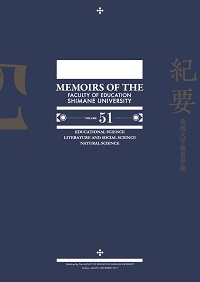島根大学教育学部
ISSN:2433-5355(オンライン)
ISSN:1880-8581(冊子体)
A publication of this bulletin in print format has not been made since no.51.
ISSN:1880-8581(冊子体)
A publication of this bulletin in print format has not been made since no.51.

number of downloads : ?
Use this link to cite this item : https://ir.lib.shimane-u.ac.jp/52535
Memoirs of the Faculty of Education, Shimane University 54
2021-02-17 発行
局所的空主語言語としての初期英語とパラメター階層
Early English as Local Null Subject Language and Its Implication for Parameter Hierarchy
File
Description
There has been much debate in the literature about whether or to what extent Early English allowed null subjects. Recent statistical researches such as Rusten( 2019) have revealed the overall picture of the distribution of null subjects in the language. In the theoretical comparative studies, on the other hand, the traditional null subject parameter (Chomsky (1981), Rizzi (1982, 1986)) has been reconsidered from the microparametric perspective since the pioneering work on partial null subject languages by Holmberg (2010). In this paper, I characterize Old and Early Middle English as “Local Null Subject Language,” which was the last stage of the gradual decline of referential null subjects that had once been productively observed in Proto-Germanic, and account for why pronominal subjects were likely to be dropped in V1 environments when they were interpreted to refer to third person referents in Early English, essentially revising and developing the seminal work by Nawata (2014). More specifically, I argue that referential null subjects were licensed by the speakers of Early English who had the option of default agreement for tensed verbs, and they were interpreted via the topic chain in the sense of Frascarelli (2007, 2018) and Frascarelli and Jiménez-Fernández (2019). I also evaluate the validity of our hypothesis from the viewpoint of the theory of parameter hierarchy put forth by Robers (2019), and consider how we should deal with gradual syntactic changes that are often observed in diachronic development of many languages including English.
Other Article
PP. 51 - 62
